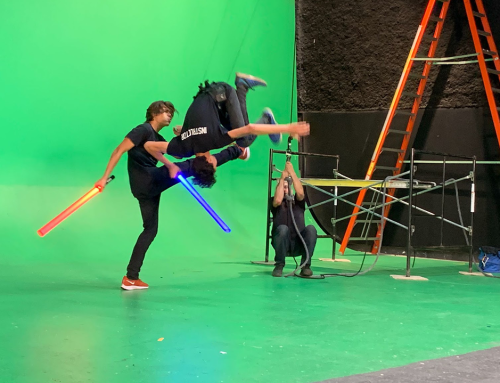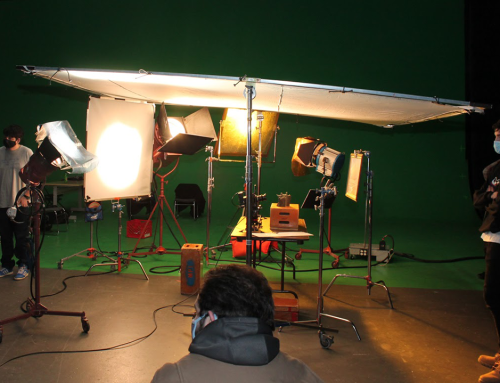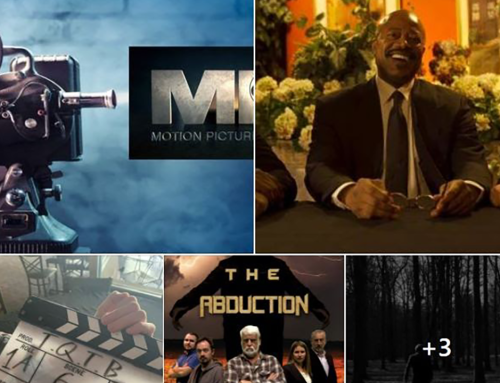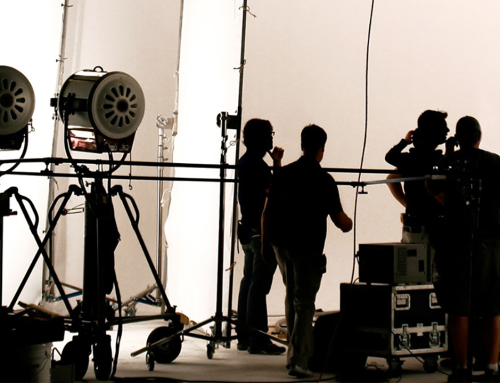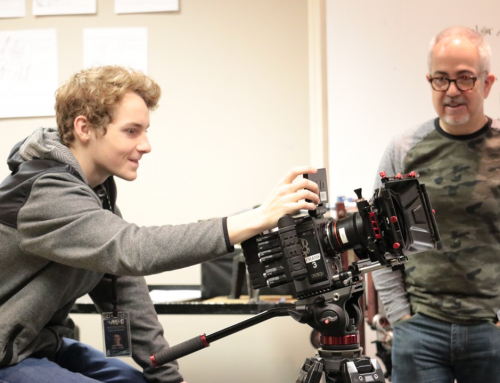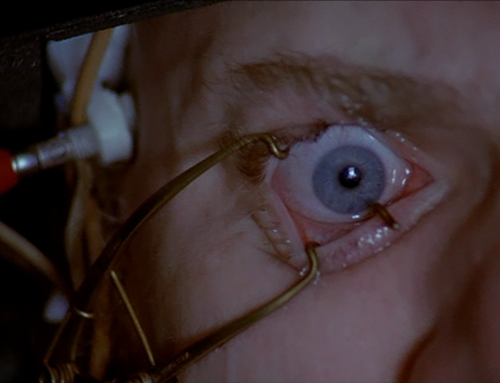You’ve heard it before. “Getting work in the film industry is all about networking. It’s all about who you know.”
But, what exactly does that mean? How do you go about meeting the people who will help you get those desirable jobs? How does a person at the bottom begin this “networking” thing, anyway?
In this article, I will outline a few concepts about networking that should help you get off to a good start, and then, off and running on your own.
What is “Networking”?
In their book, Guerrilla Networking, Jay Conrad Levinson and Monroe Mann define networking as “becoming the type of person other people want to meet.”
I love this perspective because it changes the focus of your actions in a way that puts you in control of your personal growth.
So first, ask yourself the question: “What kind of person are people in the industry looking to hire? And, how do I go about becoming that person?”
Then, spend your time and energy focusing on developing or enhancing those qualities that you have determined people are looking for.
What might those qualities be?
You’re Talented? So What?
The first answers most people will come up with relate to talent or skills.
However, before you start simply thinking, “I need to improve my skills!” or “I’m already highly skilled, so people will want to meet me!” keep this phrase in mind:
Talent is ASSUMED.
That’s right. Talent is not a distinguishing trait. Talent is expected.
If you’re looking for a job in the industry, it is assumed that you are talented. And, you had better know what you’re doing down pat! You are expected to know what you are doing walking in the door. Because, if you don’t, you’ll be sent right back out that door, expeditiously.
So yes, the first thing you need to do is make sure your talent is up to snuff, and you have a solid command of your skillset. This is a basic expectation.
But, talent alone will not differentiate you from the crowd. Lots of people have talent. The industry is inundated with talented people looking for work…
- Go to an audition, you’ll see 12 other people who look just like you, and probably have just as much training.
- You have an amazing reel that shows off your lighting or camera work? So do 20 other people.
- Sent in your stellar resume to a producer? She will put yours into the pile of the 50 others with similar credentials that came in that day for the same job.
Of course you have to have the skills and the talent. Then, assuming you have the talent, what are the other qualities that you’ll need to develop or improve upon? Here is my personal short-list:
- Strong work ethic;
- A Team-player;
- Generous with time, energy, and talent;
- Punctual, accountable;
- Communicates well;
- A joy to be around, cooperative, non-confrontational;
- Devoted to the completion of the project;
These are just off the top of my head, and are not exhaustive. This list could go on, and will change depending on the person doing the hiring—which can actually be a good thing.
The fact that these can be very subjective allows you to be yourself, and bring your own personal flair to the way you express these qualities. And THAT is how you differentiate yourself from the crowd!
Ok, so let’s say you’ve developed all these wonderful qualities. Now, how do tell people about your work ethic and how much of a joy you are to be around?
The answer is: You don’t.
That is to say, YOU don’t. You let other people do it for you.
You have no idea what it’s like to work with you. Only other people can attest to that. And, as much as you tell people you have a strong work ethic, they’re going to need evidence—someone who can vouch for your claims.
This is where the common phrase I used in the title of this article comes from: “It’s not about who you know, it’s about who knows YOU.” Because, the next question you’ll need to answer is:
“Who can vouch for you?”
So, let’s update the earlier definition networking: “Networking is showing that you are the type of person that other people will want to talk about and work with.”
Now, how do you get other people to want to talk about you to the people offering the jobs?
This brings us to the next part of the networking process…
Net-Working: “Work Begets Work”
In this industry, you’re often more likely to get a gig based on a referral—someone’s suggestion that YOU be offered a job, based on their experience with you—rather than an application that you send in.
Producers, directors, and casting professionals might look over a resume that you’ve submitted. But, it’s often to see if you’ve worked with, or trained with, people that they know who can vouch for you, and for your qualities as a coworker.
And, they WILL call and ask. And people will talk about their experience with you—whether it was good, or bad.
One of our previous blog articles talks about how, in the filmmaking industry, experience carries more weight than your education credentials. The same about your reputation over simply your talent alone.
So, the trick is to create more people who will have the GOOD experience of working with you—of seeing you in action, working and being great to work with. They will talk about you and create your reputation.
The key part of the word “Network” is “Work”. You build your network by working.
Work begets work: the more you do, the more you get to do, because the more people will see what you do, and how well you do it—and that speaks to more than just your “talent”.
Ok, I know it sounds like a Catch-22:
“You have to work to get work? But, how do you get work if you haven’t worked yet?”
Well, in our case, “work” doesn’t always imply “professional employment”. Before you get that professional job, you may have to prove that you can do the same level and quality of work without getting paid very much, or at all.
Yes, you may have to work for free.
But, working “for free” doesn’t mean “for no rewards”.
Remember, you are practicing your craft, and maintaining that expected level of talent that employers assume you will have.
You are also showing off your work ethic, proving you are an asset on set, an encouraging joy to be around when things get stressful—and, they ALWAYS get stressful.
If you know where to look, you can find plenty of opportunities to work:
- Actors can work in community theater.
- Film crew members can volunteer as a PA, and show that they can really hustle.
- Student projects allow you to work with the “next generation” of professionals.
- Taking classes might expose you to experienced professionals who are there to expand their current repertoire of skills.
- Edit videos for your favorite non-profit organization.
- Produce your own projects to provide experience for yourself and others.
These are just a few examples of opportunities to show people who you are as a coworker and artistic collaborator.
MPI’s Advantage
One of the advantages of coming to study here at Motion Picture Institute, is that you graduate with a solid foundation for your network.
By the time you graduate, you will have worked on numerous projects and scenes in many different capacities, helping your classmates accomplish their filmmaking goals, while they, in turn, help you.
You will not only get to know many people whom you can vouch for, but many people who can now vouch for you.
Some of your classmates may already have a job waiting for them after graduation. And when they get there, and the boss asks, “Do you know anyone cool who can do this job well?” their first thoughts will go to their classmates, with whom they’ve just spent a year working on films.
Will they think of you?
You Better Work!
Ru Paul had it right.
Work hard, work often, and give the very best of yourself at all times. The reward will be a vast Network from which you will often get the call:
“Hey! Are you available?”
To which I hope you can respond with either, “Yes!” or…
“Sorry. I’m busy working on another project!”


